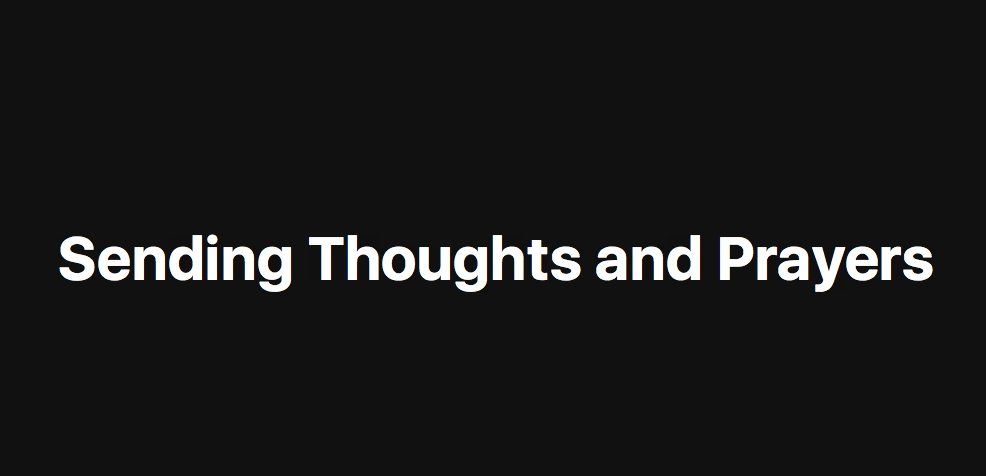Set-up Proper Boundaries
“Liberty must be limited in order to be possessed.” – Edmund Burke
When you sit down to eat with a ruler, Consider carefully what is before you;And put a knife to your throat if you are a man given to appetite. Proverbs 23:1-2
Last week, we talked about some different techniques that media companies use to trick you into spending more time on their platforms than you realize you are spending. This week, we are going to discuss how you can counter these traps with some strategies of your own. You don’t have to use all of these techniques (I’m not your boss). Everyone is different, and some techniques will work better for you than others. Try the following and see what works best for you.
1. Clock-in, clock-out.
A big part of the trouble with social media is that it is an infinity pool of engaging content. We keep scrolling, watching, and swiping to find the one more thing that will satisfy us, and before we know it, hours have gone by.
One of the best things you can do to counter the infinity pool is to log your time on different apps. For some people, the simple fact of a timer running while you’re watching youtube videos will be enough for them to be conscious of how much time they are spending. If you need a little extra help in scaling back your time spent on instagram each day, you can download one of a number of apps and programs that lock you out of certain apps or games after you spend your allotted time on them each day (you get to set these limits in the program). You’ll find yourself asking “is this video worth my spending 8 of my 15 minutes that I allow myself on youtube each day?” More often than not, the answer will be no.
2. Make things inconvenient for yourself.
One of reasons why we instinctively check our social feeds during any break in our day is because we can. It’s easy, two clicks and we are in before we have even made the conscious decision to be swimming in our infinity pool of data. The designers of social media apps know this, and that’s why they push hard for you to download their apps or have your computer auto-log you into their site.
The easiest thing you can do to make your social media use more deliberate is to make logging in just a little harder. Log out of your youtube account after using it so you consciously have to enter
your username and password before you start watching streaming videos next time. Don’t download the facebook app, make yourself log into the website manually instead.
You can also limit the locations you access certain forms of social media. For instance, I only go on facebook on my desktop. This stops me from scrolling endlessly on my phone at restaurants or at work. It seems like a weird trick, but it works well for me.
Another variation of this is where you put your technology when it’s not in use. Some people are very disciplined at not carrying their phone around the house with them when they are home at night. If you leave your phone in the kitchen, you won’t be able to fall into the endless scrolling trap as easily.
3. Don’t browse right before bed or right after getting up in the morning.
Ever sit on your phone on the couch as you’re browsing instagram and thing “I’m too tired to go to bed”? It takes willpower to switch tasks, even if that task is going to bed, because it’s far easier to just keep scrolling, swiping, and watching videos. To avoid falling into the infinity pool trap when you are tired and lacking willpower, try setting yourself a buffer time of at least 30 minutes of no phone or internet before you go to bed and after you wake up in the morning.
To make this easier, I actually don’t bring my phone into my bedroom. I use an alarm clock to wake up (yes, they still make them), and read a book before I fall asleep at night. Again, deliberate inconvenience is your friend when reclaiming your time – if the phone stays in your kitchen when you’re home at night, you won’t be tempted to browse instagram one last time before you turn in for the night.
4. Don’t post angry.
If you feel your anger start to rise at something you read on social media, it’s time to step away from the technology for a while. Do not, under any circumstances, start posting. James 19-20 tells us
“So then, my beloved brethren, let every man be swift to hear, slow to speak, slow to wrath; 20 for the wrath of man does not produce the righteousness of God.”
That’s exactly the opposite of what tech companies want you to do. They want you to get upset and engage with the content.
Why?
Right, because outrage drives engagement and engagement means they are getting attention, which is a valuable commodity (reference pt. 2 of this series). Don’t fall into the trap of thinking that outrage is a virtue.
If there’s some good that can be done by posting, commenting, or sharing about what is making you angry, then great go ahead and post… after you’ve had some time to cool down. Nothing needs to be done immediately – the internet isn’t going anywhere. If it should be done, it can be done in a few hours after you’ve had time to calm down.
5. Take breaks
One of the best things you can do to start taking back control of your internet time is to take breaks. Try a 24 hour technology fast. If that’s too easy, try for 48 hours. Every time you instinctively reach for your phone durnig the fast, make a mental note. You will be shocked to find how much of a part of your life picking up your phone to check social media has become.
Some people make this a weekly exercise. That’s probably a little tough for most of us, but if we can’t do a 24 tech break at least once a month, we are probably too handcuffed to our phones.
The key to unlocking those handcuffs is yours. Try some of these techniques and see if they make a difference for you.
As I’ve said before, my wish is not that you stop using your phone. My wish is that you realize how much of your life you are spending on social media and related apps. If you want to spend time on them, that’s fine, but you need to be consciously making that choice. God has given you a finite amount of time on this planet to steward. Do it well. Spend your time and attention in a way that is honoring to him.
Author: Samuel Schmitt






